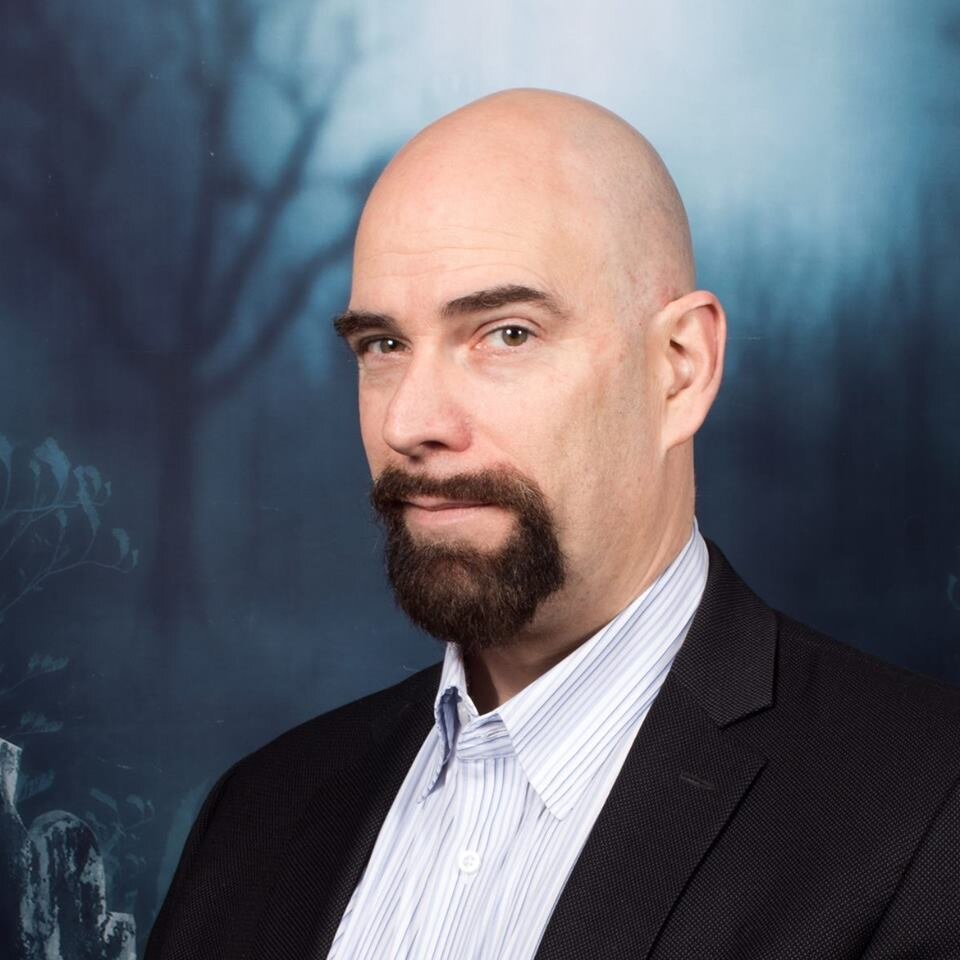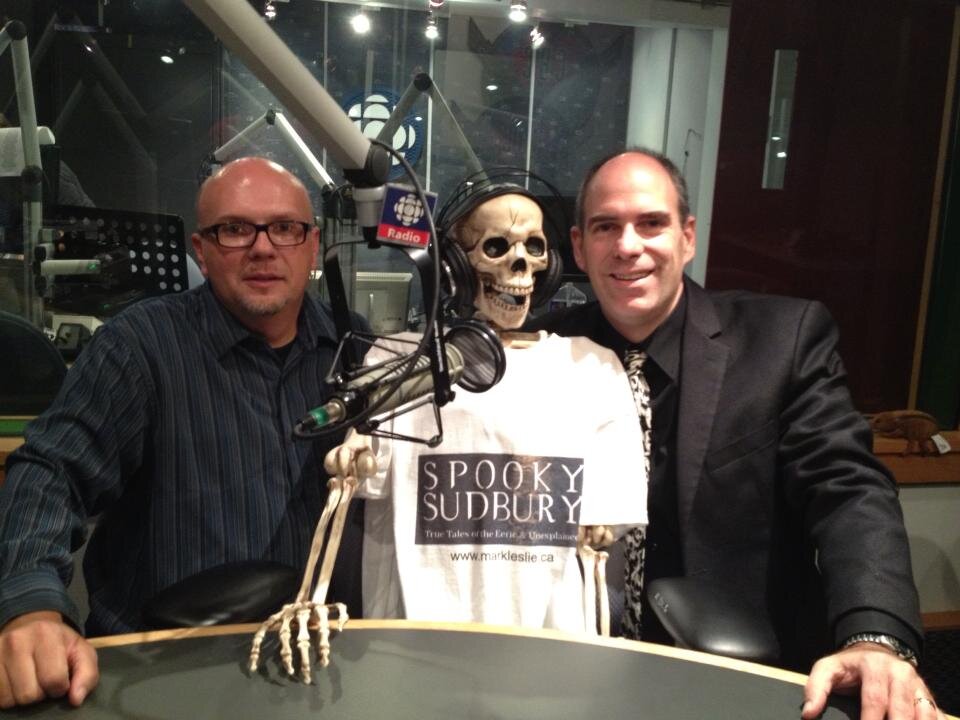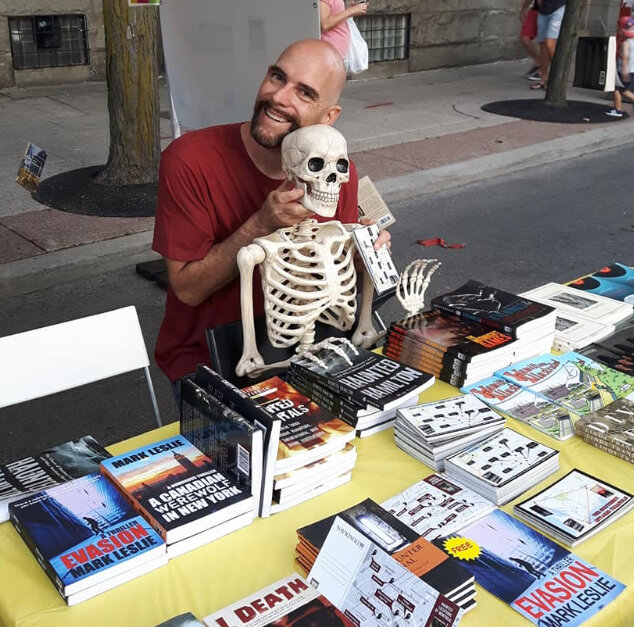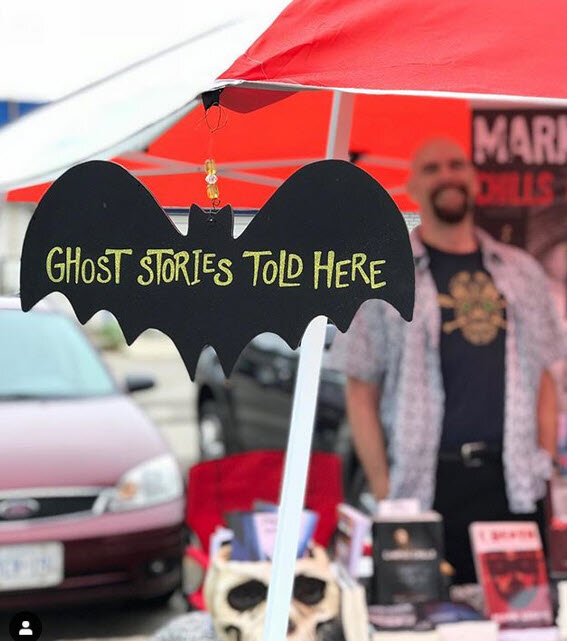Mark Leslie Lefebvre Finds His Voice
Several years ago at When Words Collide in Calgary, I was lucky enough to sit in a couple of sessions presented by Mark Leslie Lefebvre. I say “lucky,” because they were some of the most worthwhile sessions of my weekend. Since then, Mark has started a podcast (one of the few I listen to) and has made several changes in his career, but he has continued to be a dynamic force in the Canadian and global publishing industry, especially for self-published authors.
Recently, in an interview on Joshua Pantalleresco’s podcast Just Joshing (another on my very short list), he admitted that despite all the speaking he does, he often still gets nervous making small talk and that he has had to learn to project the confidence others see.
That’s someone I want to talk to, I thought.
Fortunately, he wanted to talk to me, too.
Whether you are a writer or not, I hope you are also inspired by Mark’s story of overcoming personal fears in order to pursue his passion of telling stories and helping others be successful doing the same.
Author, speaker, bookseller, and publishing industry expert Mark Leslie Lefebvre on overcoming personal fears to fulfill his passion—telling stories and helping other authors be successful.
Mark Leslie Lefebvre, also known simply as Mark Leslie, is a study in contrasts. He describes himself as “very tall and recognizable. I’m a big bald guy with a beard and look like I can beat the crap out of you. But I define myself as a book nerd—books are my life. I’ve been passionate about books and writing pretty much my entire life.”
Mark is the brains (and brawn!) behind the self-publishing platform Kobo Writing Life, and last year, transitioned from heading that up to being the Director of Business Development for the self-publishing platform Draft2Digital. Besides dozens of published short stories, he has written or edited over 20 books, including three novels in the horror and thriller genres, a non-fiction paranormal series focusing on ghost stories in his home province of Ontario, Canada and elsewhere, and three publishing guides for authors. He presents at around a dozen conferences and workshops every year about writing, publishing, and bookselling. His podcast, Stark Reflections, recently topped the 100-episode mark, and his guests have included some of the most respected names in the writing industry. He also does one-to-one author and publisher consulting.
Wherever he speaks, he comes across as knowledgeable, confident, witty, and, above all, passionate about stories. But despite his credentials, he is completely self-effacing, freely admitting that he’s an introvert who is shy making small talk and that he is still occasionally bothered by the nervous stomach that made him throw up before going onstage when he was in university theatre. Like many writers, his public persona is a set of skills he’s learned and intentionally employs, not something that comes naturally to him—even after more than 25 years in the industry.
“When I'm on stage, I'm expected to entertain, educate, and inform, and I better do my job and leave everything else behind,” says Mark. “But the minute I come off stage, even if it’s to roaring applause, I'll go shirk off and sit in the corner somewhere. I’m more than happy to talk to someone who approaches me, but I would not walk into a room and expect to command everyone’s attention unless they are there to see me. It’s the way I’ve always been.”
“ I would not walk into a room and expect to command everyone’s attention unless they are there to see me. It’s the way I’ve always been.”
Mark sold his first short story in 1992, the same year he began working as a part-time bookseller. Later, in 2002, his first professional story sale was published in an anthology (Stardust edited by Julie E. Czernada) meant to teach science curriculum to Ontario fourth-graders in an entertaining way. Mark’s story used the idea of a futuristic window pane made of water that would let you look back in time one minute, enabling the characters to solve a crime, to teach the refracting properties of light.
“Julie got a letter from a teacher with a reluctant reader in her class. The teacher said that my story was the first one the little boy had ever finished reading on his own. Not only that, he was so excited and inspired that he wrote his own sequel to the story. I still have that letter—it’s the most cherished piece of fan mail I’ve ever received. I could get a thousand five-star reviews on Amazon and it wouldn’t mean as much to me as the fact there was a boy who didn’t like to read, and suddenly liked to read, and not only that, he liked to write too. I’m not sure how I can top that,” says Mark.
Mark’s own passion for both reading and writing stories began very young when his Baba would read to him. His mother also kept him well-stocked with comic books which she purchased from the corner store where she worked. Mark eventually started drawing his own comics—using stick figures, to be sure, but it was enough for the storytelling bug to bite him and not let go.
“It's one thing to have imaginary things going on in your own mind. It’s another to tell a story to a friend. And it's quite another when you put that down on paper and someone else can come along at any point and read it. It’s their story now, even though you’ve written it, because the movie playing in their head is different than the one you’ve created. The story is yours, but it’s also theirs. That's magic,” says Mark.
“The story is yours, but it’s also theirs. That’s magic.”
Mark always wanted to become a teacher, but, as he says, his grades weren’t good enough to get into the university program (which required a 95% GPA at the time due to the demand). Instead, he used his passion for drama and theatre to teach a two-week drama camp for teenagers at his university campus. The skills he picked up both participating in and teaching theatre have served him in surprising ways in his career in writing.
“I've always thought of myself as a nerd and an outcast. I never had a lot of self-confidence. When I worked in the book industry, I had an amazing manager who told me ‘When you’re here in the bookstore, I don’t care what’s going on, you are playing the best bookseller in the world. You leave everything else in the back room.’ As an actor, that's something a director would do. ‘What do you want in this scene?’ As a writer, you think, ‘What is the purpose of this scene? What does the character want and how do they try to get it?’ And now, I’m more comfortable on stage than in the audience, because I’m there to perform a role,” says Mark.
He attributes the tough-loving figurative slaps upside the head his fiancée, Liz, gives him with helping him reach outside himself when in group situations that make him uncomfortable. She frequently reminds him that he has value to share, he just needs to share it.
When Mark is presenting with his “author hat,” he frequently brings one of his bony sidekicks with him.
“I was at an author event as a writer, in a room full of authors all chatting with each other. Liz pulled me aside and asked me why I was being so quiet and reserved. ‘You talk to hundreds of people around the world and help them. There’s a new writer here who’s trying to figure things out. Why aren’t you helping him like that?’ I said, ‘I’m Mark the Horror Guy right now. I brought my skeleton!’ But she told me I could help that author be more successful, and she was right,” says Mark.
That’s not the only time Liz has helped him to step outside his comfort zone to be a better teacher (possibly because she is an educator herself, which Mark says means he can live his teaching dreams vicariously through her—“but on her worst day, she’s far better than I am on my best day.”). He also recently read The Alter Ego Effect by Todd Herman, which promotes the idea of creating a persona—”the best version of yourself”—to help you achieve your goals. The book inspired him to take the performance skills he’d been using as a speaker for years and trigger them very intentionally to help in his career. He even created a persona to help overcome writer’s resistance and achieve his word count goals.
“I had to get over the fact that people would actually be interested in what I had to say, whether it was a story I was making up or something I had to say about writing or publishing. It’s not an insignificant thing to overcome. That’s where the Alter Ego Effect comes into play, because I can trigger a guy who’s not nervous and then I can do it,” says Mark.
Mark says one of the most important lessons he’s learned can be summed up in a quote from the Harry Bosch series by Michael Connelly, what Mark calls the Harry Bosch Principal: Everybody counts or nobody counts.
“Recently, I was at a NaNoWriMo writing session to get to know people in my new community,” says Mark. “I could have said to myself, I’m important because I’ve published twenty books and I’ve worked in the industry. But there was someone sitting beside me working on the first thing they’ve ever written, and there was something I could learn from them. So in your writer journey, treat people with respect by default. That’s the best advice I can give to anyone, not just writers.”
“Everybody counts or nobody counts. Treat people with respect by default.”
Like many multi-passionate authorpreneurs, one of the biggest challenges Mark has is making time in his busy schedule to write. However, he looks at this as a positive, saying that he hasn’t worked for a long time.
“Even though I work sixty- to eighty-hour weeks, I have to fight to have time to write,” says Mark. “I hope I’m lucky enough to continue to have that challenge—it’s a sign that I’m doing something that has meaning, not just for me, but for other people that I can hopefully help along the way. I hope I get to continue to inspire, inform, and entertain people, whether it’s through fiction or writing.”
You can find more about Mark, his books, his podcast, and his social media links at https://markleslie.ca/.
On a personal note, I am hoping to finish the “zero draft” for The Sphinx’s Heart today! YIPPEE!
This is a new way of writing a book for me, someone who has always leaned more towards the “pantsing” side of things. And I certainly won’t be doing every book this way. But with this complicated epic-ish fantasy trilogy, after doing my typical bare-bones outline, I found that I wanted to really work out the twists and turns of the book before taking the time to commit beautiful words to the page (that may then need to be trashed because of things I developed later).
Using this technique came from a combination of ideas from two other authors—Peter V. Brett, who claims to make 50,000+ “step sheets” for his epic fantasy novels (The Demon Cycle series), and Rachel Aaron, who suggests taking a few minutes before each writing session to write out what happens in a scene point form before you begin to type (in her book 2k to 10k).
I used Rachel’s technique to finish The Waterboy this spring and was astonished when I wrote the last half of the novella (about 10,000 words) in less than two days. However, my handwriting is slow and somewhat painful. Ideas flow better for me when I’m typing. So when it came time to begin working on The Sphinx’s Heart in earnest and I knew I had to make all the little “toys” I’d dropped in Book 1 (The Undine’s Tear) into something that actually matters for both this book and the next one to finish the trilogy, I decided to use the “write it out first” technique on the entire novel before I began writing the real first draft.
And the “zero draft” was born.
As of this morning, this draft is at 41,000 words. I estimate the finished book will be right around the same length as the first one at 164,000 words. My hope is that, as of Monday, I’ll be able to start the first draft without much to slow me down, because the hard work of deciding what happens when and doing research to support what needs to happen has mostly been done. And I’m planning to finish writing that first draft by the end of December so I can stay on track for my planned publishing date of July.
Just typing all that terrifies me a little. That means I’ll be writing a 164k-word novel in a month. That’s about 5,500 words per day if I only take one day off all month. If I want more days off, I’ll have to write more words on other days.
It’s like the most epic NaNoWriMo challenge ever.
Plus, I still have other writing assignments this month and I’m going to visit my sister for a week.
So. Wish me luck? And pray for me! Haha.
Hey, even if I don’t quite make it, it will still be one of the most epic things I’ve ever accomplished. And my book will still be almost done.
Happy Friday, friends! (I’ll keep you posted.)
What are you doing this month that scares you a little?






